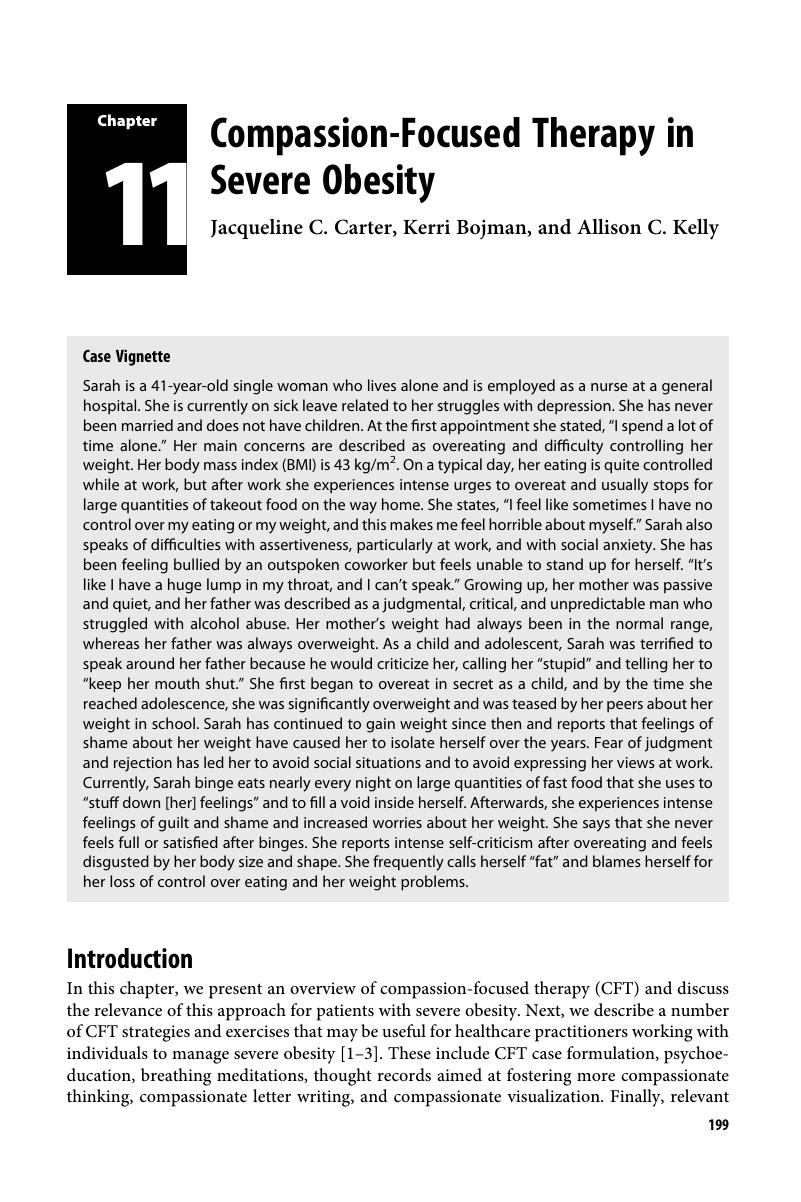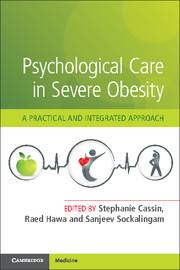Book contents
- Psychological Care in Severe Obesity
- Psychological Care in Severe Obesity
- Copyright page
- Dedication
- Contents
- Contributors
- Preface
- Section 1 Introduction to Psychological Care in Severe Obesity
- Section 2 Adapting Motivational Interviewing for Severe Obesity
- Section 3 Adapting Cognitive-Behavioral Therapy for Severe Obesity
- Section 4 Adapting Mindfulness- and Compassion-Based Therapies for Severe Obesity
- Chapter 10 Mindfulness-Based Therapies in Severe Obesity
- Chapter 11 Compassion-Focused Therapy in Severe Obesity
- Section 5 Additional Psychological Therapies Adapted for Severe Obesity Care
- Section 6 Integrated Approaches in Obesity Care
- Index
- References
Chapter 11 - Compassion-Focused Therapy in Severe Obesity
from Section 4 - Adapting Mindfulness- and Compassion-Based Therapies for Severe Obesity
Published online by Cambridge University Press: 01 June 2018
- Psychological Care in Severe Obesity
- Psychological Care in Severe Obesity
- Copyright page
- Dedication
- Contents
- Contributors
- Preface
- Section 1 Introduction to Psychological Care in Severe Obesity
- Section 2 Adapting Motivational Interviewing for Severe Obesity
- Section 3 Adapting Cognitive-Behavioral Therapy for Severe Obesity
- Section 4 Adapting Mindfulness- and Compassion-Based Therapies for Severe Obesity
- Chapter 10 Mindfulness-Based Therapies in Severe Obesity
- Chapter 11 Compassion-Focused Therapy in Severe Obesity
- Section 5 Additional Psychological Therapies Adapted for Severe Obesity Care
- Section 6 Integrated Approaches in Obesity Care
- Index
- References
Summary

- Type
- Chapter
- Information
- Psychological Care in Severe ObesityA Practical and Integrated Approach, pp. 199 - 212Publisher: Cambridge University PressPrint publication year: 2018

